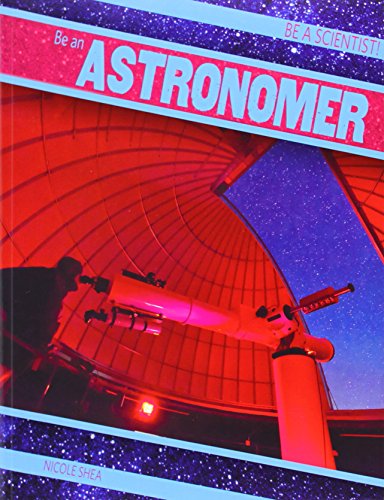-
Great Astronomers
Robert S. (Robert Stawell) Ball
language (, March 24, 2011)This book was converted from its physical edition to the digital format by a community of volunteers. You may find it for free on the web. Purchase of the Kindle edition includes wireless delivery.
-
Great Astronomers
Robert Stawell Ball, Ella Porter, Audioliterature
Audiobook (Audioliterature, Dec. 31, 2017)The positions of the stars indicated the time to plough, and the time to sow. To the mariner who was seeking a way across the trackless ocean, the heavenly bodies offered the only reliable marks by which his path could be guided. There was, accordingly, a stimulus both from intellectual curiosity and from practical necessity to follow the movements of the stars. In the ensuing chapters we have endeavoured to sketch the lives and the work of the great philosophers, by whose labours the science of astronomy has been created. We shall commence with Ptolemy, who, after the foundations of the science had been laid by Hipparchus, gave to astronomy the form in which it was taught throughout the Middle Ages. We shall next see Copernicus. We then pass to the genius of Galileo and Newton, and afterwards we shall trace the careers of other more recent discoverers.
-
Be an Astronomer
Nicole Shea
Paperback (Gareth Stevens Pub Learning library, Aug. 1, 2014)Stargazing may not just be a hobby. For some, it's a clue they should pursue a career in astronomy. In this intriguing book, readers will learn what it takes to become an astronomer and about several puzzles of the universe past astronomers have unlocked. Some topics include how we know a black hole is there if we can't see it, the way a star works and what happens when it dies, and the discovery that most stars we see are actually pairs of stars. Enthralling photographs serve as reminders of the beauty and vastness of the universe. V
V
-
Astronomers
David Abbott
Library Binding (Peter Bedrick Books, Nov. 1, 1984)Describes the lives, education, and accomplishments of astronomers from Heraklides of Pontus from ancient Greece to Carl Sagan
-
Astronomers
Ruth Owen
Library Binding (Powerkids Pr, July 15, 2013)Astronomers have been studying the night sky for thousands of years. Today, technology including space telescopes, rovers, and deep-space probes makes astronomy a truly exciting field. Young readers may be inspired to help solve the mysteries of our universe when they grow up. Q
Q
-
Astronomy
Alex Fabrizio, Kat Uno
Board book (Little Hero, July 21, 2020)Discover Astronomy, from the planets of our Solar System to the vast Milky Way. Simple text introduces babies to the complex concepts in friendly language: “Our bright sun keeps us warm. But it is also a star, like the stars in the night sky”. Adorably illustrated baby astronomers will make little ones feel at home in the big universe. K
K
-
Astronomers
Tom Greve
Paperback (Rourke Educational Media, Aug. 1, 2015)Those who study space, the planets and stars, and the infinite realms beyond our own solar system are astronomers. They play an important role in understanding our Earth, and its place in a universe so vast, it can sometimes defy our understanding. Modern astronomy allows people to see places no human can ever expect to touch, at distances no human could ever expect to travel. It also begs the question: could there be life on another planet? Learn all about the early astronomers and the techniques and tools they used to further the science of astronomy. This title will allow students to understand that natural objects exist from the very small to the immensely large.• Diagrams• Bold keywords with phonetic glossary• Text based questions• Content sidebars Y
Y
-
Astronomy
Inc. BarCharts
Pamphlet (QuickStudy, Nov. 21, 2000)A comprehensive guide to the known universe. Great reference for classes, including earth science and physical science as well as astronomy. Also great for those curious about the solar system and the universe beyond.
-
Great Astronomers
R.S. Ball
Paperback (CreateSpace Independent Publishing Platform, March 16, 2015)Great Astronomers is a classic astronomer biography collection by R.S. Ball that includes biographical sketches of the following: Ptolemy -- Copernicus -- Tycho Brahe -- Galileo -- Kepler -- Isaac Newton -- Flamsteed -- Halley -- Bradley -- William Herschel -- Laplace -- Brinkley -- John Herschel -- The Earl of Rosse -- Airy -- Hamilton -- Le Verrier -- Adams. It has been my object in these pages of astronomer biography to present the life of each astronomer in such detail as to enable the reader to realise in some degree the man's character and surroundings; and I have endeavoured to indicate as clearly as circumstances would permit the main features of the discoveries by which he has become known.
-
Great Astronomers
Robert Ball
language (Didactic Press, Jan. 7, 2014)An excellent introduction to the greatest astronomers, the ones who pushed the consciousness of the human race up and out and into the heavens, exploring space and stretching the collective mind of the human race. It is by the work of these astronomers that our true place in the universe was better understood, and they helped to usher in a period of wonder and technological development that would take us out to the stars.Contents include:INTRODUCTION.PTOLEMY.COPERNICUS.TYCHO BRAHE.GALILEO.KEPLER.ISAAC NEWTON.HALLEY.BRADLEY.WILLIAM HERSCHEL.LAPLACE.BRINKLEY.JOHN HERSCHEL.THE EARL OF ROSSE.AIRY.HAMILTON.LE VERRIER.ADAMS.
-
Astronomers
Ruth Owen
Paperback (Powerkids Pr, July 15, 2013)Explores the work of astronomers, including information on their working conditions, their tools, and important scientific discoveries. S
S
-
Astronomers
Neil Morris
Library Binding (Chrysalis Education, Oct. 31, 2003)The dramatic stories of ten astronomers whose discoveries helped advance people's ideas of the universe around them. Y
Y